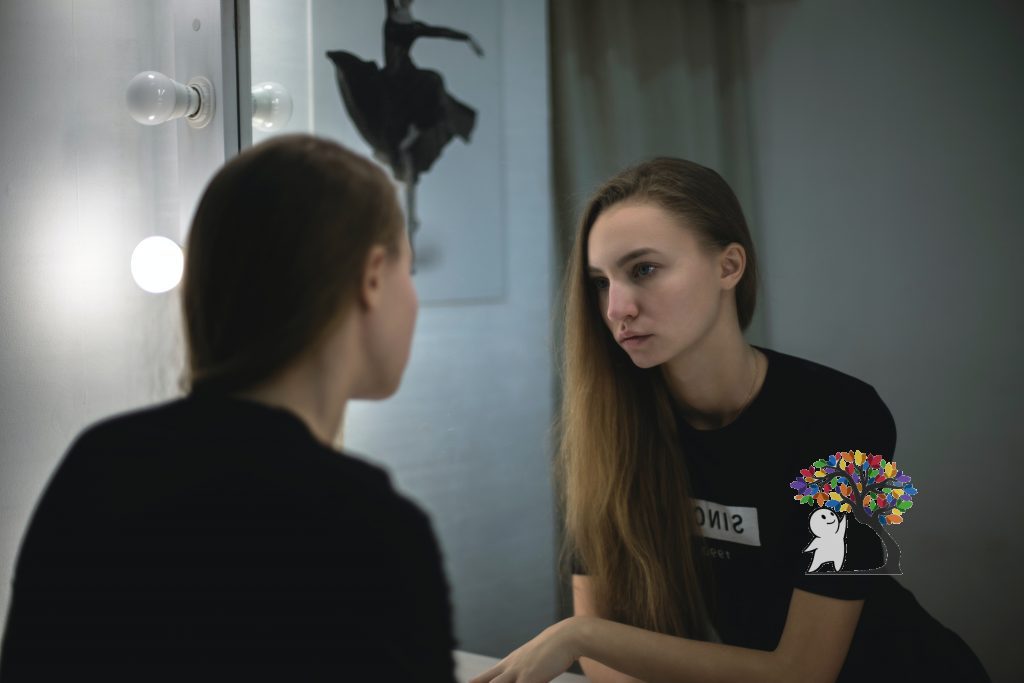How Social Media Use Affects Mental Health

Social media sure has its benefits, you can stay connected to friends far or close, post updates to family and friends, and entertain yourself for hours. But as much fun as social media may seem, there are some negative effects with prolonged use. Here’s how social media use affects your mental health.
1. Problems With Impulse Control

Do you find yourself endlessly scrolling through your social media feed on your phone? All you want to do is watch short ‘funny cat compilation’ clips. Just one or two, right? It seems like it’s only been a few minutes, but then you look at the clock and realize it’s been a few hours. Too much time on social media can affect your focus and impulse control. Which means it may be harder to concentrate and study for that big test tomorrow, when all you want to do is look at your phone.
2. Fear of Missing Out or ‘FOMO’
You’re scrolling through your social media feed when you notice an exciting post from your friend. You suddenly feel anxious realizing an interesting event is happening somewhere and you’re missing out. This is often known as ‘FOMO’ or the ‘fear of missing out.’ Social media apps are constantly showing you the ‘best versions’ of people’s lives which are often filtered and selective. Because of this, you may think your friends are living a better life than you, and feel anxious that you’re missing out on these extreme experiences.
3. Self-Esteem Issues

Do you struggle with low self-esteem after spending a good amount of time on social media? Even if you’re aware of photos being filtered or altered, the exposure to these photos can make some people feel insufficient. Excessive feelings of insecurity and discontentment can be caused due to frequent social media use.
4. Depression
Excessive social media use has been linked to anxiety and depression. A 2016 study in the U.S. found that those who only used social media every now were three times less likely to exhibit symptoms of depression than those who use social media frequently and excessively. The study states that: “[Social media] use was significantly associated with increased depression.”
5. Isolation & Loneliness
Do you feel more lonely logging off from your social media account than you did logging in? Well, a 2018 study from the University of Pennsylvania found that the more time you spend on Facebook, Instagram, or Snapchat, the more lonely you may feel. Their results indicated that if you lessen your social media use it can make you feel less isolated than you felt before. Co-author of the study, Jordyn Young, stated that they “were actually able to prove a causal link between the two” Young explained, “meaning that if you use less social media, it will make you less depressed and less lonely. As opposed to just saying ‘if you use less [social media], you are more likely to be less depressed and less lonely.” So while those five hours of Instagram may seem entertaining in the moment, it may just make you feel a bit more lonely long-term. Let’s start with cutting back 30 minutes a day? 40? 50? Sooner or later, a good ole 10 or 20 minutes here and there is all you’ll need. You can watch cat videos on Instagram later!
So, do you relate to any of these signs? Let us know in the comments down below!
Written by Michal Mitchell
Follow me on Instagram and Twitter at @jackycoocoo for more articles, celebrity interviews, original poetry and more.
Check out “7 Small Changes That Can Improve Your Mental Health” or my other articles here.
References:
- Hunt, M. G., Marx, R., Lipson, C., & Young, J. (2018, December 1). No more fomo: Limiting social media decreases loneliness and depression. No More FOMO: Limiting Social Media Decreases Loneliness and Depression | Journal of Social and Clinical Psychology. https://guilfordjournals.com/doi/abs/10.1521/jscp.2018.37.10.751?journalCode=jscp.
- Vigodner, S. (2018, November 13). Penn researchers find social media usage increases feelings of DEPRESSION, loneliness. The Daily Pennsylvanian. https://www.thedp.com/article/2018/11/social-media-upenn-depression-study-mental-health-students.
- Lin, L. yi, Sidani, J. E., Shensa, A., Radovic, A., Miller, E., Colditz, J. B., Hoffman, B. L., Giles, L. M., & Primack, B. A. (2016, January 19). ASSOCIATION between social media use and depression Among U.S. young adults. Wiley Online Library. https://onlinelibrary.wiley.com/doi/10.1002/da.22466.
- The Ontario Student drug use and mental Health Survey (OSDUHS). CAMH. (n.d.). https://www.camh.ca/en/science-and-research/institutes-and-centres/institute-for-mental-health-policy-research/ontario-student-drug-use-and-health-survey—osduhs.
- Gordon, S. (2021). How social media impacts your mental health. Verywell Mind. https://www.verywellmind.com/link-between-social-media-and-mental-health-5089347#citation-4.
- Robinson, L. (2021, July 22). Social media and mental health. HelpGuide.org. https://www.helpguide.org/articles/mental-health/social-media-and-mental-health.htm.
- The social Dilemma: Social media and your mental health. Here’s How Social Media Affects Your Mental Health | McLean Hospital. (2021, February 9). https://www.mcleanhospital.org/essential/it-or-not-social-medias-affecting-your-mental-health.


Responses